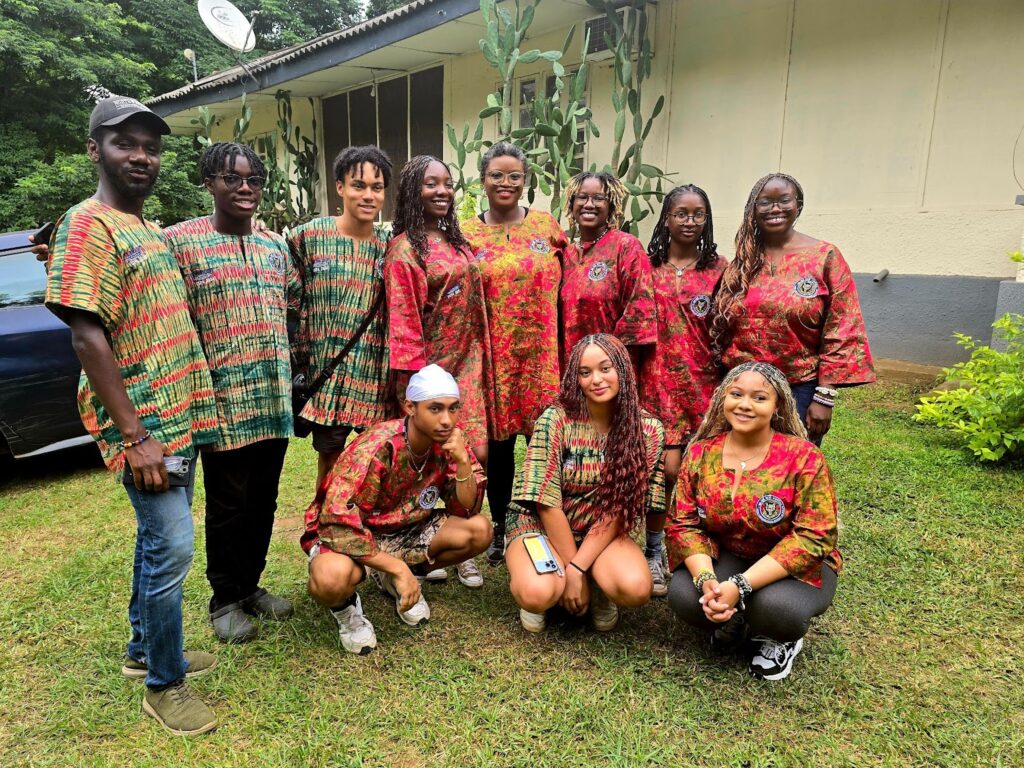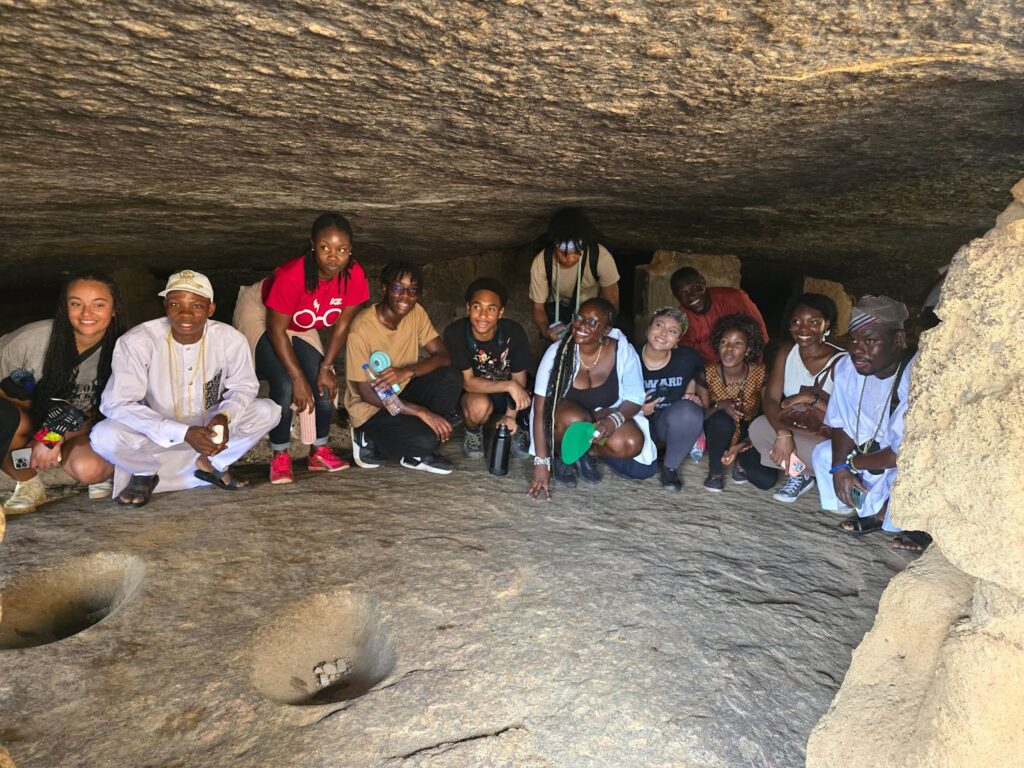
After years of hosting the Fulbright-Hays Intensive Advanced Yoruba Group Project Abroad since 2018, Howard will soon pass the leadership of the program to another institution in early 2026, as part of the program’s rotational structure of leadership.
Each summer, students immerse in Yoruba culture in Nigeria, studying at the University of Ibadan and participating in cooking classes, performances, market visits and tours of historical sites in southwestern Nigeria. Open to students across the nation, the program aims to deepen participants’ understanding of Yoruba culture, with some even becoming fluent in the language.
Past participants in this travel abroad opportunity say they built community and deep connection with Nigerian culture. Though travel abroad will look different for Yoruba students in the coming years, Olúwáfúnkẹ́ Ògúnya, Yoruba professor at Howard and current director of the Fulbright-Hays project, is hopeful that future programs will have the same impact on her students.
Yoruba students will still be able to apply to the Fulbright-Hays summer study abroad program after the directorship moves, but the Department of World Languages and Cultures hopes to kick off Howard’s own Yoruba study abroad program for the summer of 2026.
Ògúnyá plans for the new study abroad program to be a continuation of the Fulbright-Hays, with the same immersive program style and activities. The only anticipated difference is that students will have to pay tuition to Howard for the summer program.
Through Fulbright-Hays students pay a $1,000 program fee, the program covers tuition at the host university, travel costs and food.
Ògúnyá said the FLAS fellowship can help with the summer tuition fees at Howard.
Following the current Yoruba program’s application process, which includes an interview and a Yoruba oral proficiency test, students travel to Nigeria for an immersive experience in Yoruba culture and language. The students each receive a host family, and the group is hosted by the Yoruba Language Centre at the University of Ibadan.
Howard has the largest number of students studying the Yoruba language in the United States, according to Ògúnyá. Out of the 10 student participants this past summer, six were from Howard. The other four students attended Harvard, Northwestern, UT Texas and the University of Indiana.
According to the American Association of Teachers of Yoruba (AATY), the only other HBCU with Yoruba courses is Morgan State University.
At the University of Ibadan, participants take 120 credit hours throughout the eight weeks.
Students supervised by Ògúnyá learn in traditional classrooms and outside with activities and places to visit, like Osun-Osogbo Sacred Groves, waterfalls, Abeokuta and Ilé-Ifẹ̀.

Kayla Rose (Yoruba given name Ifasanmi Adigun) is a graduating senior psychology major who went on the study abroad program in the summer of 2023. She found the program to be very life-changing.
“It helped me to be more cognizant and then also more intentional, especially when I got back to America,” she said. “The history that we were exposed to in Yorubaland, with the different excursions that we went on, visiting different historical sites, really helps you to have a sense of self.”
Being around native speakers in Nigeria and having conversations in the language throughout the day has proven to be beneficial to students’ proficiency in the language. Ògúnyá said one student tested out of Yoruba III after leaving the program.
The trip heavily impacted Amina Wague, a third-year human development major, because her learning in Nigeria exceeded the language. She was able to see firsthand the Yoruba culture and mannerisms. Wague learned how people in Yorubaland criticize, learn, sing and connect deeply with their art and cooking.
Ògúnyá said for many, this trip is a homecoming, a way to get connected to their roots. This was the case for Siji Ketiku, a senior health science major and communications minor.
Ketiku’s parents are Yoruba, and they taught her the importance of greeting and respecting elders since she was a child. Before her study abroad trip, she didn’t understand why these traits were stressed so much.
“Going back to Yorubaland in Nigeria and seeing how it’s a way of life for them, it made me put two and two together and connect with my roots further,” she said.
The Yoruba program at Howard hosts a movie night every fall semester to bring everyone from the different Yoruba classes together. Ògúnyá said this event celebrates people through Yoruba food and movies.
To create more space for Yoruba students to be together, Ògúnyá and some current students are planning to start a Yoruba club in the spring. She encourages students to take Yoruba and come to these spaces.
“It’s beyond just coming to class to learn, we also form a community,” she said.
Ògúnyá said it’s important to learn different languages because the world is becoming a global market, and it will open opportunities for students after college. She believes it’s even more important to learn Yoruba.
“It’s bigger than a language spoken in Africa,” she said.
She also said Yoruba culture and language are thriving in Cuba, Brazil and North America. She shed light on Oyotunji, a Yoruba village in South Carolina. There are traces of Yoruba culture around the globe as a result of transatlantic movement.
Ògúnyá said we can see the impact of the language and culture in our contemporary society, as there is Yoruba influence in music like afrobeats and fashion.
Copy edited by Jalyn Lovelady
































